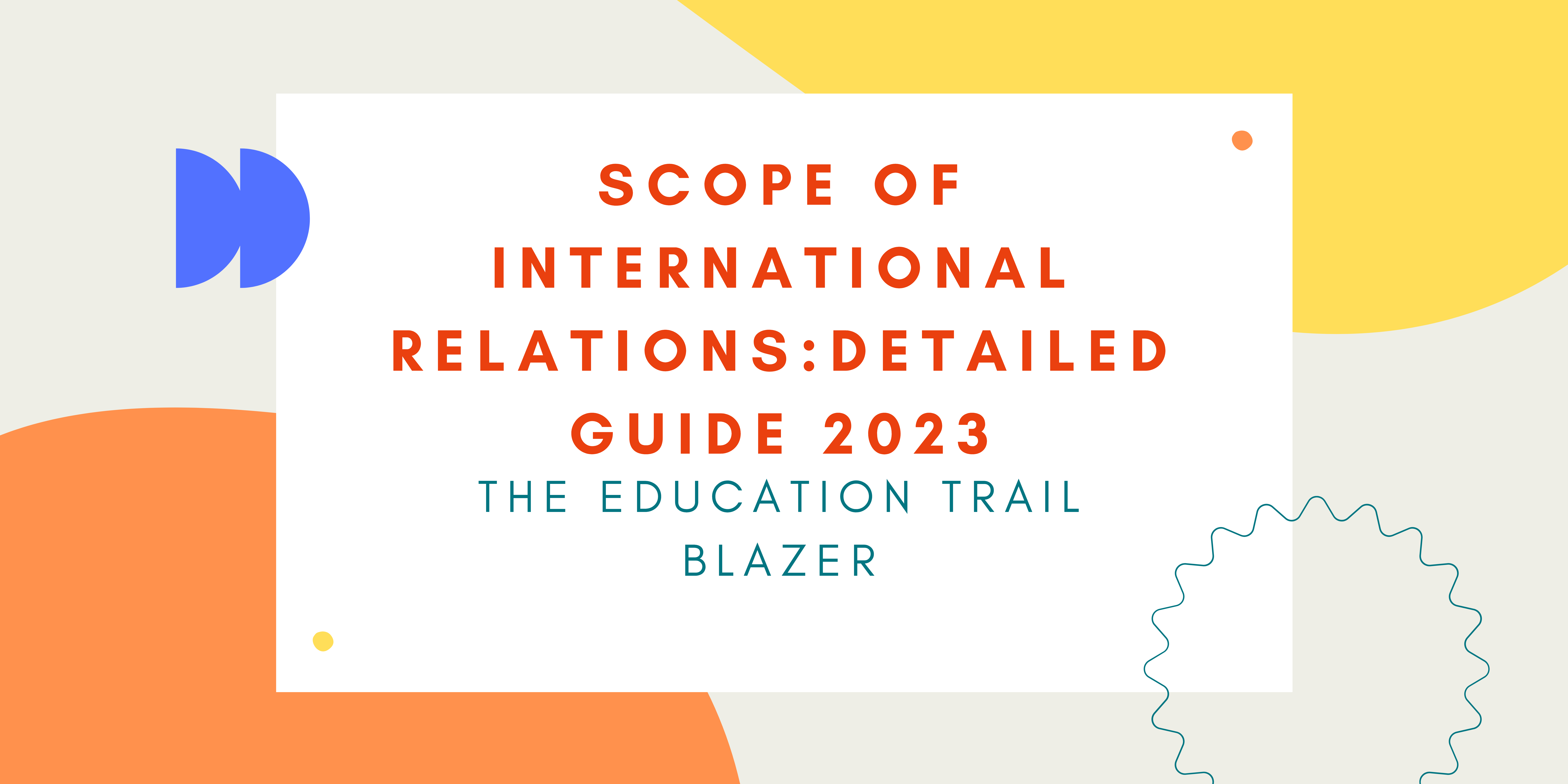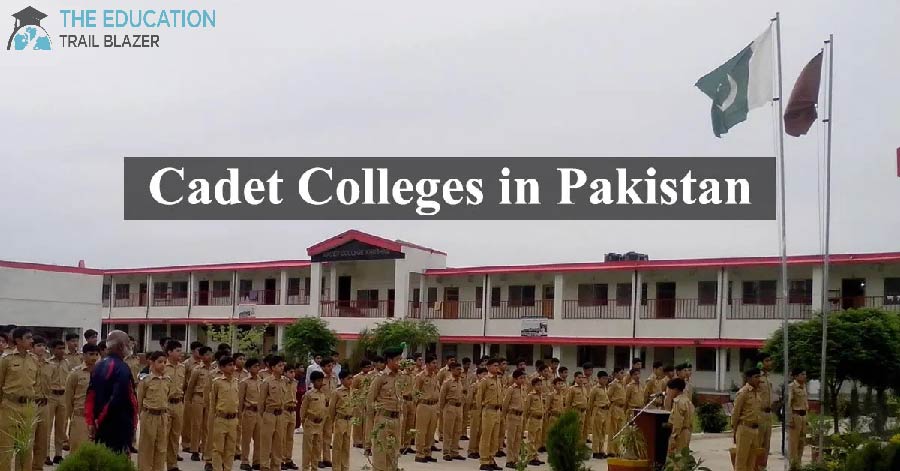International relations, often abbreviated as IR, is a field of study that focuses on the relationships between countries, international organizations, non-state actors, and other global actors. It encompasses various aspects of politics, economics, law, diplomacy, security, and culture on the international stage.
The study of international relations seeks to understand and analyze the interactions, conflicts, and cooperation between states and non-state actors within the global system. It explores the complexities of power dynamics, decision-making processes, and the pursuit of national interests in an interconnected world.
Key Concepts in International Relations:
Sovereignty: The principle that states possess supreme authority and independence within their territorial boundaries, allowing them to govern themselves without external interference.
Power: The ability of a state or non-state actor to influence others and achieve desired outcomes. Power can be economic, military, diplomatic, or cultural.
Diplomacy: The practice of managing international relations through negotiation, dialogue, and communication. It involves promoting cooperation, resolving disputes, and advancing national interests.
International Organizations: Institutions such as the United Nations (UN), World Trade Organization (WTO), and International Monetary Fund (IMF) that facilitate cooperation and coordination among states on various global issues.
Globalization: The increasing interconnectedness and interdependence of countries through the flow of goods, services, information, ideas, and people. It has profound effects on economies, cultures, politics, and societies worldwide.
Security: The protection of a state’s territory, people, and interests from threats such as military aggression, terrorism, cyberattacks, and environmental challenges. It includes both traditional and non-traditional security concerns.
Human Rights: Universal rights and freedoms that are inherent to all individuals, regardless of their nationality, ethnicity, or social status. The promotion and protection of human rights are essential elements of international relations.
Global Governance: The mechanisms, institutions, and processes through which states and non-state actors collectively address global challenges, manage common resources, and regulate international behavior.
The study of international relations encompasses various theories and approaches, including realism, liberalism, constructivism, and feminism. These theories offer different perspectives on how states and other actors interact, why conflicts arise, and how cooperation can be achieved in the international system.
International relations play a crucial role in shaping global politics, international cooperation, conflict resolution, and the pursuit of shared goals such as peace, sustainable development, and human rights. It is a dynamic field that continually evolves in response to emerging challenges and changing geopolitical dynamics.
Need Of Studying International Relations
The study of international relations offers a broad scope of opportunities and benefits:
Global Career Opportunities: Studying international relations can lead to diverse career paths. Graduates can work in diplomacy, foreign affairs, international organizations, non-governmental organizations (NGOs), think tanks, research institutes, multinational corporations, and media outlets. The global nature of international relations allows for opportunities to work in different countries and engage with a variety of cultures.
Diplomacy and Foreign Policy: International relations provides a foundation for understanding the principles and practices of diplomacy and foreign policy. It equips individuals with the knowledge and analytical skills necessary to navigate complex international negotiations, represent their country’s interests abroad, and contribute to the formulation of foreign policy decisions.
Global Governance and International Organizations: The study of international relations encompasses an examination of global governance structures and the role of international organizations such as the United Nations (UN), World Bank, International Monetary Fund (IMF), and regional bodies. This understanding is valuable for those interested in engaging with global issues, participating in international negotiations, and contributing to the development of international norms and regulations.
Conflict Analysis and Resolution: International relations provides tools for analyzing conflicts at the international, regional, and local levels. By studying IR, individuals can gain a deeper understanding of the root causes of conflicts, the dynamics involved, and the various methods and strategies for conflict resolution, peacebuilding, and post-conflict reconstruction.
Understanding Global Issues: International relations helps individuals comprehend and analyze global issues that transcend national boundaries. Whether it’s climate change, global health crises, human rights violations, economic interdependence, or transnational terrorism, studying IR provides the necessary knowledge and skills to engage with these complex challenges and contribute to finding sustainable solutions.
Critical Thinking and Analytical Skills: The study of international relations fosters critical thinking and analytical skills. It involves examining diverse perspectives, evaluating evidence, analyzing data, and developing informed arguments. These skills are highly valued in many professional fields and can be applied to a wide range of contexts beyond international relations.
Cultural Understanding and Communication: International relations emphasizes cross-cultural understanding and effective communication. By studying IR, individuals can develop cultural sensitivity, intercultural communication skills, and the ability to work effectively with people from diverse backgrounds. This is crucial in a globalized world where interactions between different cultures and societies are becoming increasingly frequent.
Overall, the scope of international relations is vast, offering opportunities for career growth, global engagement, and the chance to contribute to addressing pressing global challenges. It equips individuals with valuable skills and knowledge necessary to navigate the complexities of the international arena.
Read More: Scope of LLB in Pakistan
Scope Of International Relations In Pakistan
The scope of international relations in Pakistan is significant and encompasses various aspects. Here are some key areas where international relations plays a crucial role in Pakistan:
Diplomatic Relations: Pakistan’s international relations focus heavily on maintaining diplomatic relations with other countries. This involves managing bilateral and multilateral relationships, negotiating agreements, representing Pakistan’s interests abroad, and engaging in diplomacy to address regional and global issues.
Regional Dynamics: Pakistan is situated in a strategically important region, sharing borders with countries such as India, China, Afghanistan, and Iran. International relations in Pakistan involve managing relationships with these neighboring countries, addressing border disputes, promoting regional stability, and collaborating on regional initiatives like the South Asian Association for Regional Cooperation (SAARC) and the Shanghai Cooperation Organization (SCO).
Security and Defense: International relations in Pakistan are closely linked to security and defense concerns. Pakistan has been engaged in regional security issues, including the ongoing conflict in Afghanistan, counterterrorism efforts, and maintaining a balance of power with neighboring countries. Cooperation with international partners in areas such as defense, intelligence sharing, and counterterrorism is an essential aspect of Pakistan’s international relations.
Economic Cooperation: Pakistan’s international relations also focus on economic cooperation and trade. Establishing strong economic ties with other countries, attracting foreign direct investment, negotiating trade agreements, and participating in regional economic initiatives like the China-Pakistan Economic Corridor (CPEC) are important aspects of Pakistan’s international relations.
Multilateral Engagement: Pakistan actively participates in multilateral forums and organizations such as the United Nations (UN), Organization of Islamic Cooperation (OIC), World Trade Organization (WTO), and various regional organizations. This engagement allows Pakistan to address global issues, promote its interests, and collaborate with other countries on matters of mutual concern.
Humanitarian Assistance and Development: International relations in Pakistan also involve engaging in humanitarian assistance and development cooperation. Pakistan has been a recipient of foreign aid and assistance, and it also contributes to international efforts in providing humanitarian aid, participating in peacekeeping missions, and collaborating on development projects.
Cultural and Educational Exchanges: International relations in Pakistan encompass cultural and educational exchanges with other countries. These exchanges promote people-to-people interactions, foster mutual understanding, and enhance cooperation in fields such as education, arts, sports, and cultural heritage.
Global Challenges: Pakistan’s international relations address various global challenges, including climate change, sustainable development, energy security, and non-proliferation of nuclear weapons. Active participation in international forums and collaborations helps Pakistan address these global issues and contribute to global solutions.
To summarize, the scope of international relations in Pakistan covers a wide range of areas, including diplomacy, regional dynamics, security, defense, economic cooperation, multilateral engagement, humanitarian assistance, cultural exchanges, and addressing global challenges. These aspects are essential for Pakistan’s national interests, regional stability, economic growth, and contributing to the international community.
Read More: Scope of Computer Science in Pakistan
Importance of International Relations in Pakistan
International relations play a crucial role in Pakistan due to the following reasons:
Security and Defense: Pakistan faces various security challenges, including regional conflicts, terrorism, and border disputes. Effective international relations help Pakistan address these security concerns through diplomatic negotiations, intelligence sharing, and military cooperation. Building alliances and partnerships with other countries enhances Pakistan’s security and defense capabilities.
Regional Stability: Pakistan is located in a geopolitically significant region, which is prone to political tensions and conflicts. Through international relations, Pakistan strives to promote regional stability, resolve disputes, and foster cooperation among neighboring countries. Stable regional dynamics are essential for Pakistan’s economic growth, security, and overall development.
Economic Cooperation and Trade: International relations are crucial for Pakistan’s economic growth and development. Engaging in international trade, attracting foreign investment, and negotiating favorable trade agreements contribute to Pakistan’s economic prosperity. Building economic partnerships with other countries, particularly through initiatives like CPEC, enhances Pakistan’s infrastructure development, energy security, and economic integration with the region.
Diplomatic Representation and Influence: Effective international relations provide Pakistan with diplomatic representation and influence on the global stage. Engaging in diplomatic dialogues, participating in international organizations, and contributing to global debates allow Pakistan to promote its national interests, project its stance on important issues, and shape international agendas.
Global Challenges and Cooperation: International relations enable Pakistan to address global challenges that require collective efforts. Issues such as climate change, poverty, terrorism, and health crises transcend national boundaries and necessitate international cooperation. By engaging in international relations, Pakistan can collaborate with other countries to find solutions to these global challenges and contribute to international initiatives.
Foreign Aid and Assistance: International relations also play a significant role in securing foreign aid and assistance for Pakistan. Through diplomatic engagements, Pakistan can access financial resources, technical expertise, and humanitarian aid from international partners. Foreign aid helps address development needs, improve infrastructure, and provide relief during natural disasters and humanitarian crises.
Cultural Exchanges and Soft Power: International relations facilitate cultural exchanges, people-to-people interactions, and the projection of soft power. Through cultural diplomacy, Pakistan can enhance its global image, promote its rich cultural heritage, and build understanding and appreciation between different nations. These exchanges contribute to fostering goodwill, creating favorable perceptions, and strengthening relationships with other countries.
The importance of international relations in Pakistan lies in enhancing security, promoting regional stability, driving economic growth, addressing global challenges, securing foreign aid, and projecting influence on the global stage. Effective international relations are essential for Pakistan’s national interests, development, and positioning as an active and responsible member of the international community.
Why Should You Study International Relations?
Studying international relations offers numerous benefits and reasons to consider:
Global Perspective: International relations provide a comprehensive understanding of global affairs, helping you gain insights into political, economic, social, and cultural dynamics at the international level. It allows you to view issues from a broader perspective, considering the interconnections and interdependencies between countries and regions.
Career Opportunities: International relations open up a wide range of career opportunities. Graduates can pursue careers in diplomacy, international organizations, government agencies, non-profit organizations, think tanks, research institutes, journalism, and multinational corporations. The global nature of international relations offers opportunities for work and engagement in different countries and cultures.
Global Challenges: Studying international relations equips you with the knowledge and skills to address global challenges such as climate change, terrorism, poverty, human rights violations, and pandemics. It enables you to contribute to finding sustainable solutions to these complex issues and make a positive impact on a global scale.
Diplomatic Skills: International relations develop your diplomatic skills, including negotiation, conflict resolution, effective communication, and cultural sensitivity. These skills are valuable in various professional contexts, helping you navigate diverse perspectives, build consensus, and manage relationships in a globalized world.
Policy Analysis and Formulation: International relations provide a foundation for analyzing and understanding policy issues at the international level. It equips you with analytical tools and frameworks to assess the impact of policies, evaluate options, and contribute to policy formulation and implementation in areas such as foreign affairs, security, development, and trade.
Critical Thinking and Analytical Skills: The study of international relations fosters critical thinking, analytical reasoning, and problem-solving skills. It involves evaluating evidence, analyzing complex data, understanding diverse viewpoints, and developing well-reasoned arguments. These skills are transferable and valuable in various professional fields.
Cross-Cultural Understanding: International relations promote cross-cultural understanding and intercultural communication. By studying IR, you gain insights into different cultures, beliefs, values, and perspectives. This understanding enhances your ability to work effectively in multicultural environments, appreciate diversity, and navigate cultural differences.
Personal Development: Studying international relations broadens your intellectual horizons and encourages personal growth. It challenges your preconceptions, fosters curiosity, and enhances your capacity for empathy and global citizenship. It cultivates skills and knowledge that contribute to your personal and professional development.
Influence and Impact: International relations provide a platform for individuals to influence and make a positive impact on global issues. By engaging with international relations, you can contribute to policy debates, advocate for change, and participate in initiatives that promote peace, justice, sustainability, and human rights.
Hence, studying international relations offers a comprehensive understanding of global affairs, diverse career opportunities, the ability to address global challenges, development of diplomatic and analytical skills, cross-cultural understanding, personal growth, and the potential for influence and impact. It prepares you to navigate the complexities of our interconnected world and make meaningful contributions to global society.
Top Universities for International Relations in Pakistan
In Pakistan, several universities offer programs in international relations. Here are some of the top universities known for their excellence in the field of international relations:
Quaid-i-Azam University (QAU): Located in Islamabad, Quaid-i-Azam University is renowned for its Department of International Relations. It offers undergraduate and graduate programs in international relations, focusing on areas such as diplomacy, global politics, security studies, and regional dynamics.
Lahore University of Management Sciences (LUMS): LUMS, located in Lahore, offers a Bachelor of Science (BSc) program in Political Science and International Relations. The program covers various aspects of international relations, including diplomatic history, international law, political economy, and global governance.
University of Karachi (UoK): The Department of International Relations at the University of Karachi offers undergraduate and graduate programs in international relations. The department focuses on areas such as international politics, global security, foreign policy analysis, and regional studies.
National Defence University (NDU): NDU, located in Islamabad, is a specialized institution that offers advanced programs in international relations and strategic studies. It provides education and training to military officers, diplomats, and civil servants, with a focus on national security, defense policy, and international affairs.
University of the Punjab: The University of the Punjab, based in Lahore, offers undergraduate and postgraduate programs in international relations. The Department of Political Science and the Institute of Administrative Sciences offer courses in international relations, diplomatic studies, and global politics.
Institute of Business Administration (IBA), Karachi: IBA Karachi offers a Bachelor of Science in Economics and Mathematics with a specialization in international relations. The program combines economics, mathematics, and political science to provide a comprehensive understanding of international relations and global economic issues.
International Islamic University, Islamabad (IIUI): IIUI offers undergraduate and postgraduate programs in international relations. The Department of International Relations focuses on areas such as international politics, global governance, conflict resolution, and diplomatic studies.
It’s important to note that rankings and perceptions of universities may vary, and the suitability of a particular university depends on individual preferences and specific program offerings. It’s recommended to research each university’s curriculum, faculty, research opportunities, and alumni network to make an informed decision.
List of Subject in International Relations Degree
A degree in International Relations typically includes a range of subjects that provide a comprehensive understanding of global affairs. While the specific subjects may vary slightly between universities, here is a list of common subjects found in International Relations degree programs:
- Introduction to International Relations
- International Politics
- Global Governance
- International Law and Organizations
- Comparative Politics
- Diplomatic History
- International Political Economy
- Global Security Studies
- Conflict Analysis and Resolution
- Foreign Policy Analysis
- Regional Studies (e.g., Middle East, Asia, Europe)
- International Human Rights
- International Development
- Globalization and Its Impacts
- Terrorism and Counterterrorism
- International Trade and Finance
- International Communication
- Research Methods in International Relations
- Quantitative and Qualitative Analysis in IR
- Cross-cultural Communication and Negotiation
- Diplomacy and Diplomatic Practice
- Gender and International Relations
- Environmental Politics and Sustainable Development
- Humanitarianism and Humanitarian Intervention
- International Relations Theory
This list provides a general overview of the subjects commonly included in International Relations degree programs. However, the specific curriculum may vary depending on the university and the level of the degree (undergraduate or graduate). Students may also have the opportunity to choose elective courses or specialize in specific areas of international relations based on their interests and career goals.
Salary Range of International Relations Fields
The salary range in the field of international relations can vary widely depending on several factors such as education, experience, job location, organization type, and sector of employment. Here is a general overview of the salary range for various positions within the field:
Entry-Level Positions:
Research Assistant: $30,000 – $45,000 per year
Program Coordinator: $35,000 – $55,000 per year
Policy Analyst: $40,000 – $60,000 per year
Mid-Level Positions:
Project Manager: $50,000 – $80,000 per year
Diplomat/Foreign Service Officer: $60,000 – $100,000 per year
International Development Specialist: $60,000 – $90,000 per year
Nonprofit Program Manager: $60,000 – $90,000 per year
Senior-Level Positions:
Senior Policy Advisor: $80,000 – $120,000 per year
International Relations Director: $90,000 – $150,000 per year
International Consultant: $100,000 – $200,000+ per year
Ambassador: $120,000 – $200,000+ per year (can vary significantly depending on the country)
It’s important to note that these figures are approximate and can vary based on factors mentioned earlier. Additionally, salaries can be higher in certain sectors such as government agencies, international organizations, and private corporations compared to non-profit organizations or think tanks. Geographic location also plays a significant role, as salaries can differ significantly between countries and regions.
Conclusion
The field of international relations encompasses a broad range of career opportunities and offers a wide scope for professionals interested in global affairs. Here are some key conclusions about the scope of international relations:
Global Perspective: International relations provides a platform to examine and understand the complex dynamics between nations, international organizations, and non-state actors. It offers professionals the opportunity to analyze global issues and contribute to shaping policies and strategies on an international scale.
Diverse Career Paths: The field of international relations offers diverse career paths in areas such as diplomacy, international development, security and defense, policy analysis, conflict resolution, humanitarian work, global governance, and more. Professionals can choose to work in government agencies, non-profit organizations, think tanks, international organizations, private corporations, academia, or as consultants.
Multidisciplinary Approach: International relations draws from various disciplines such as political science, economics, history, sociology, law, and cultural studies. This interdisciplinary nature allows professionals to analyze complex issues from multiple angles and develop a comprehensive understanding of global affairs.
Policy Development and Implementation: Professionals in international relations play a crucial role in policy development and implementation. They conduct research, provide analysis, and offer recommendations to policymakers on issues such as trade, security, human rights, climate change, and more. They also participate in negotiations, diplomatic initiatives, and international conferences to represent their respective countries or organizations.
Global Networking and Collaboration: International relations professionals have the opportunity to build a strong network of contacts, both domestically and internationally. Collaboration with experts from different countries and cultures allows for the exchange of ideas, knowledge sharing, and building partnerships to address global challenges collectively.
Impact on Global Issues: Those working in international relations have the potential to contribute to addressing global challenges and making a positive impact. Whether it’s promoting peace and stability, advancing human rights, fostering economic development, addressing climate change, or managing crises, professionals in this field can actively contribute to shaping the world we live in.
In conclusion, the field of international relations offers a vast scope for professionals to engage with global issues, pursue diverse career paths, and contribute to shaping policies and strategies on an international scale. It provides an opportunity to work in a dynamic and challenging environment, fostering global understanding and cooperation.





